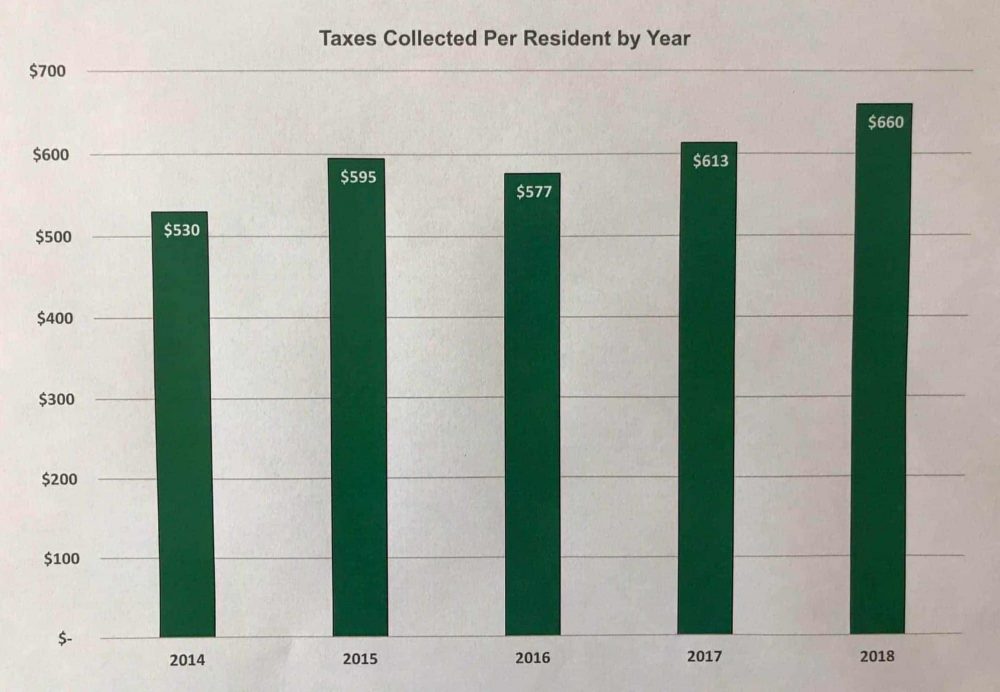Stephanie Endres' position on the 2019 Johns Creek millage rate decrease and the impact on the Year 2020 budget.
Every year during the millage rate-setting discussion, the Mayor reminds the City Council that the rate is being set for the current fiscal year. And if there is no need, the Council should return to the residents. This year when it was time to set the millage rate (10 months into the current fiscal year). There was $4.0 million that was not being spent as budgeted for current-year so a recommendation was made to not collect the money from the taxpayers.
A recommendation to reduce the millage rate by $2.0 million was unanimously accepted (7-0) to reduce the millage rate to 3.552 and do not collect $2.0 million from the taxpayers of Johns Creek. The balance of the $2.0 million would roll over to be spent for the fiscal year 2020. Please note that the City is supposed to produce a balanced budget for the current fiscal year and if money is “leftover” to spend in the next fiscal year, it is not balanced.
By reducing the millage rate for the fiscal year 2019, the initial budget assumptions for the fiscal year 2020 had to be materially adjusted. This created an opportunity for the City Council to practice a more disciplined budget management review. When the budget was complete, the staff recommended the deferral of two projects. Work would not commence until maybe April 2020 and the City Council opted to reduce a $4.0 million unsubstantiated accrual by about $1.0 million.
An additional review process for April 2020. To review updated forecasted financials to make additional decisions on project spending which will include the two projects deferred. These practices are more executive in nature and are the beginning of implementing higher-level budget management practices which are in line with the private sector.

The City manages the budget expenditures to the total budgeted revenues. (How much money is available to spend?). Secondly, tax revenues have conservative budgets by source. This means year over year, the actual tax collection revenues received are greater than the budget. Remember property taxes this year changed in the calculation which will result in evaluation and estimation processes that are different from prior years.
The millage rate is one component of the calculation. We are all learning what the impact will be on total property tax collections. Based on the new billing methodology, whether the millage rate is at 3.842 or 3.552, it will impact total collections differently as a comparative. Keep in mind, property tax collection is only one revenue component (30%) of total tax collection revenues which were conservative.
Almost every year since the inception of the city, Johns Creek has enjoyed over budget revenue receipts. And under budget operating expenditure spending. The initial estimation for the fiscal year 2019 resulted in $4.0 million from the fiscal year 2019. To be available for the fiscal year 2020 spending. Since the City Council was not comfortable changing the assumptions to any other tax collection lines. In conjunction with the fact that the property tax billing calculation changed for the fiscal year 2019. It was reasonable to leave the millage rate used for the fiscal year 2019 in the fiscal year 2020 budget.
The City of Johns Creek cannot directly impact tax collections. However, if the economy is moving along and the City has a favorable reputation for doing business. There is no reason for large negative swings in tax collection revenues in total. And if the City Council effectively manages budgeted expenditures to the actual budgets established. Expenditures should not overextend. They should continue to remain within, if not, under budget. Based on budget assumptions, actual trends, and positive economic trends, there is no reason to conclude, the actual millage rate set for the fiscal year 2020 will result in a 12% increase.
Footnote:
Lastly, the residents are paying the majority (approximately 84%) of tax collection revenue. Via sales taxes, property taxes, insurance premiums (insurance policies), and franchise taxes (phone bill, cable bill). Information derived from the COJC CAFR Report.

Was there a point to be made here?
"Based on budget assumptions, actual trends, and positive economic trends, there is no reason to conclude, the actual millage rate set for the fiscal year 2020 will result in a 12% increase."
We've already had the largest tax increase in Johns Creek history-it's called TSPLOST.
And the first thing out of a politician's mouth will be that the voters did it to themselves.
But who gets to spend it? And on what?
The politicians do.
And they get to spend it on their hastily made list of projects that may or may not have any positive return on investment.